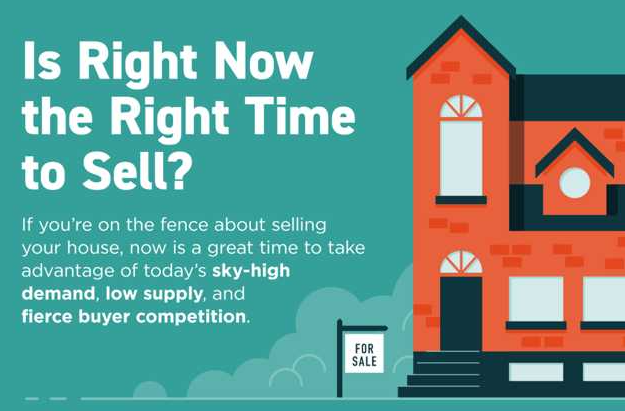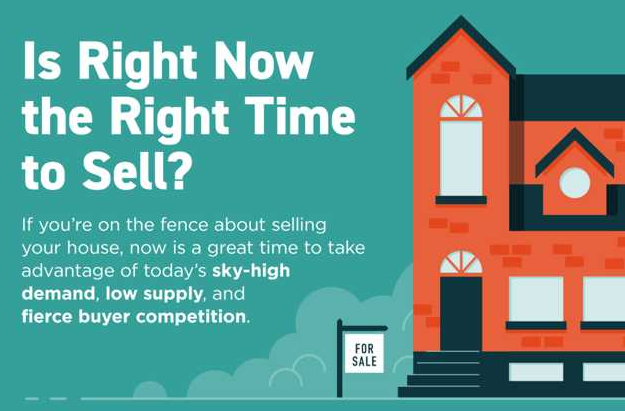
SPECIAL REPORT FOR HOME SELLERS…
28 Essential Tips To Get Your Home Sold Fast And For Top Dollar!
SELLING YOUR HOME CAN AFFECT YOUR FINANCIAL SITUATION. HERE’S INFORMATION THAT CAN HELP YOU EFFICIENTLY SELL YOUR HOME AND MAXIMIZE YOUR INVESTMENT.
Whether you are selling on your own or using a Realtor®, here are 28 essential tips that you must know. For most people, selling their home means cashing in their biggest asset. In other words, it must be handled with great care if you hope to capitalize on your investment.
This guide was written to give you the tools you need to maximize your profits, maintain control, and reduce the stress that comes with the home-selling process.
Tip No. 1: Know Why You’re selling.
The reason you look closely at why you want to sell is because your motivations play an important role in the process. They affect everything from setting a price to deciding how much time and money you will invest to getting your home ready for selling. For example, what is more important to you….the money you walk away with, or the length of time your property is on the market? If your goal is a quick sale, that can dictate one kind of approach. If you want to maximize your profit, the sales process will almost certainly take longer.
Tip No. 2: Once You Know – Keep It To yourself.
Your reasons can affect how you negotiate the sale of your home, but they shouldn’t be given as ammunition to the person who wants to buy it. For example, if a prospective buyer knows you must move quickly, they have you at their mercy in the negotiation process. Your reasons are nobody’s business but your own.
Tip No. 3: Do Your Homework Before Setting a Price.
Settling on an asking price shouldn’t be taken lightly. After you set your price, you’ve told buyers the absolute maximum they have to pay for your home. The trick for the seller is to get a selling price as close to the asking price as possible. If you start out by pricing too high, you might not be taken seriously by prospective buyers and their agents. A price too low can result in giving away money.
Setting your home’s sale price can be a fairly easy process if you live in a subdivision comprised of homes with similar or identical floor plans, built in the same time period. Then all you have to do is look at recent sales in the neighborhood to give you a good ballpark figure. However many people live in older neighborhoods that have changed quite a bit over the years. Homes in your neighborhood may be different in minor or substantial ways—the house next door may have added another bedroom, or the one across the street might have been built recently to fill a vacant lot. As a neighborhood evolves over the years, you may find that there aren’t many homes that are truly comparable to your own.
If you decide to sell your home on your own, the most common way to set a value is to look at homes that have sold in your neighborhood within the past six months, as well as those now on the market. That’s certainly how potential buyers will assess the worth of your home.
Another way you can learn what homes have sold for in your neighborhood is by making a quick trip to Town Hall (home sale information is in the public records in most communities, but not all). Another way is to go online. Zillow.com is a popular site, but they average the asking prices for a neighborhood. This might not be accurate if the homes around you are not similar.
If this sounds like a lot of work, you should call Evan Greene of Remax Signature. He’s not going to tell you what you want to hear…….he will tell you the truth! He will do market research and provide you with comps showing what your home should be priced at to best meet your goals, even if you are not ready to hire him yet. He is attuned to nuances in the market that may not be apparent from comparable sales and listings. For more information on pricing your home correctly, please view Evan’s Market Value Report and Squeezing every last dollar report.
Tip No. 4: Go Home Shopping Yourself.
The best way to get to know your competition, identify features that are popular and learn what turns buyers off is to check out other open houses. Plan on spending a few weekends touring other homes on the market to learn what other sellers are asking. Be sure to make note of the floor plan, condition, appearance, size of lot, location and other features.
If you visit enough homes, pay close attention to the details and hear what other “buyers” are saying, you’ll develop a good understanding of how different features affect pricing. Then you can apply what you’ve learned to the task of setting your price. But don’t forget to include in the equation what homes are actually selling for, not just simply what people are asking. Remember, if you’re serious about getting your home sold quickly, don’t be more expensive than your competition.
Tip No. 5: Know When To Get An Appraisal.
Sometimes you can use an appraisal to your benefit in marketing your home, but an appraisal costs money. It also has a limited life and sometimes you may not like the figure you hear. However, it usually ends up saving you time and money, because pricing a home correctly is the best advice in any market.
Tip No. 6: Your Tax Assessment Means Absolutely Nothing.
Some people look to tax assessments to assign a value. The problem here is that assessments are based on a number of criteria unrelated to property values, so they often don’t necessarily reflect the true value of your home. Have you ever heard of two identical homes in the same neighborhood with dramatically different assessed values because one was purchased more recently than the other? Well, it happens quite often.
Tip No. 7: Find A Good Realtor.® Don’t Just Skip This Section….Read It – It Can Save You Money!
Nearly two-thirds of the people who sell on their own, say they wouldn’t do it again…according to research by the National Association of Realtors®. Sellers surveyed stated difficulties in setting a price, marketing handicaps and liability concerns among the primary reasons they would turn to a Realtor® next time. Selling on your own usually eats up more time and effort than you might initially expect.
Even if you decide to try on your own, talk to a Realtor® that you can trust. The professionals at Remax are more than willing to help do-it-yourself sellers with comps, paperwork, marketing tips, etc. Plus..you’ll have a relationship with an agent if problems do arise that require professional help.
Tip No. 8: Give Yourself Room To Negotiate….But Not Too Much.
Make sure you leave yourself enough room in which to bargain. If what you’re asking for is unreasonable to the buyer, and their first offer is unacceptable to you, then you better make sure you have a counter offer that is acceptable to you. In setting your asking price, review your priorities! Do you want to maximize your profit or sell quickly? Pricing too high can and will prevent your house from being seen.
Tip No. 9: Maximize Your Home’s Sales Potential.
Each year, corporate America spends billions of dollars on product and packaging design. The lesson here is that appearance is critical – and it would be foolish to ignore this when selling your home.
You may not be able to change your home’s location or its floor plan, but you can do a lot to improve its appearance, and you should. The look and feel of your home generates a greater emotional response than any other factor. You may price your home to sell, but a prospective buyer reacts to what they see, hear, feel and smell. You don’t sell a home the same way you live in your home. Look around your house and clear the floor space. Take out every piece of furniture you can live without. Clutter makes your rooms look smaller.
Tip No. 10: Rely On Other People’s Judgment As Well As Your Own.
The key to effective marketing is knowing your product’s good and bad points. In the case of your home, accentuating the good can mean a faster sale for more money; failing to deal with the bad can mean months on the market and a lower-than-desired sales price.
The biggest mistake you can make at this point is to rely solely on your own judgment. Remember this is your home, a place of fond memories. There are bound to be emotional issues that can impair your ability to make an honest assessment of your home’s strengths and weaknesses. In evaluating what improvements you can make, don’t be shy about asking others for their opinions. Make sure you’re getting an honest answer. Some may try to spare your feelings, which is what you don’t need. Fortunately, your Realtor® won’t be shy in discussing what should be done to make a home more marketable.
Tip No. 11: Clean Like You’ve Never Cleaned Before.
Pick up, straighten, unclutter, scrub, scour, dust…..well, you get the idea. Remember, you’re competing with other people’s homes.
Tip No. 12: Fix Everything No Matter How Insignificant It May Appear.
The step that squeaks, the light switch that doesn’t work, the stress crack in the living room – they might be minor annoyances to you, but they can also be deal-breakers. The problem is that you never know what will turn a buyer off. Take notice of caulk in bathrooms, behind sinks and along tubs and showers…..clean it up. Something minor that’s gone unattended can suggest that perhaps there are bigger, less visible problems. So fix it.
Tip No. 13: Remove All Traces Of You From Your Home.
When you toured other people’s homes, you may have felt some discomfort. This probably occurred because you saw, heard or otherwise sensed something that made you feel as if you were intruding into someone’s life. The last thing you want others to feel in visiting your home is that same sense of discomfort. Avoid this by making your home as neutral as possible. Anything that interferes with a prospective buyers’ ability to see themselves living in your home must be eliminated. A few carefully chosen knick knacks and family portraits may add warmth and character to the home, too many are a distraction.
Tip No. 14: The Little Touches Can Make A Difference.
While personal items can detract, other small touches can help make your house a home to buyers. A well-placed vase of flowers, accent pieces of sculpture, potpourri in the bathroom—all can enhance the attractiveness of your home in a subtle, soft-spoken way. Try pursuing any of the home magazines for tips.
Tip No. 15: Don’t Let Smell Be Your Downfall.
Smells chase away buyers. All traces of pet and smoking odors must be eliminated. Fresh paint and the cleaning of carpets is a good way to eliminate odors.
Tip No. 16: Disclose Everything.
Smart sellers proactively go above and beyond the laws to disclose all known defects to their buyers. Consider getting a pre-home sale inspection. You will uncover possible defects that you could fix and not have a deal fall apart later.
Tip No. 17: The More Prospects – The Better.
By maximizing your home’s marketability, you’ll increase your chances of attracting more than one prospective buyer. Why is this better?….because if several buyers compete with each other, you usually end up with more money in your pocket. This is another way of saying “Price it Right”
Tip No. 18: Don’t Get Emotional During Negotiations.
The extent of most people’s experience in the art of negotiation begins and ends at their local auto dealership. Some of us have memories of haggling with car salesmen. If you can just let go of the emotion you’ve invested in your home and approach negotiations in a detached, businesslike manner, you’ll find the process to be a lot less painful. In fact, you might even enjoy it – and you’ll definitely have an advantage over prospective buyers who get caught up in the emotion of the situation.
Tip No. 19: Know Your Buyer.
In the negotiation process, your objective is to be in control. The better you know your buyer, the better you can maintain control. As a rule, buyers want the best property they can afford for the least amount of money. But knowing specifically what motivates your buyer enables you to negotiate more effectively. Maybe your buyer needs to move quickly. Or the maximum amount he can spend is just a little below your asking price. Knowing this information puts you in a better bargaining position. We as Realtors® are trained to pick up the clues, subtly, without pressure.
Tip No. 20: Find Out What The Buyer Can Pay.
As soon as possible, try to find out the mortgage amount the buyer is qualified for and the size of his down payment. This will help you with your negotiations.
Tip No. 21: Find Out When The Buyer Would Like To Close.
When a buyer would “like” to close is often when they need to close. Knowing this gives you his deadline for completing negotiations – again, an advantage in negotiations.
Tip No. 22: Don’t Sign A Deal On Your Next Home Until You Have A Solid Deal On Yours.
If circumstances force you into closing on your new home while you’re still making mortgage payments on the old one, you might end up turning yourself into a seller who is eager (or desperate) for the first deal that comes along.
Tip No. 23: Don’t Move Out Before You Sell.
Studies have shown that it is more difficult to sell a home that is vacant – it looks abandoned, forgotten, simply not appealing. It could even cost you thousands. If you move, you’re also telling buyers that you have a new home and are probably motivated to sell.
Tip No. 24: Don’t Give Yourself A Deadline.
Forcing yourself to sell by a certain date adds unnecessary pressure and puts you at a serious disadvantage in negotiations. If you do have a deadline, get your home on the market sooner than later.
Tip No. 25: Don’t Take A Low Offer Personally.
If the first offer is well below the asking price, don’t get angry or feel insulted. Evaluate the offer objectively. Make sure it spells out the offering price, amount of down payment, mortgage amount, a closing date and any special requests. Now you have a point from which you can negotiate. An offer should always be countered to, no matter how low it is initially.
Tip No. 26: A Really Low Offer May Mean The Buyer’s Not Qualified.
If you feel an offer is inadequate, now would be a good time to make sure the buyer has been qualified to carry a mortgage of the size this deal would require (if you haven’t done so already). Ask how they arrived at their figure, and then ask if they looked at comparables to establish what homes are going for in your neighborhood.
Tip No. 27: Hire A Real Estate Attorney.
The best way to avoid problems is to make sure that all terms, costs and responsibilities are spelled out in the contract of sale. A contract should include the names of the parties involved in the transaction, the address of the property being sold, the purchase price, where deposit monies will be held, the date for loan approval, the on or about date of closing, type of deed, any contingencies that remain to be settled, and whether there’s any personal property included (or not) in the sale. Get an attorney that is experienced in real estate and in local real estate trends as well.
Tip No. 28: Don’t Deviate From The Contract.
Resist the temptation to diverge from the contract. For example, if the buyer requests a move-in prior to closing, just say no. Now is not the time to take any chances.
If this all sounds like a lot of work, that’s because it is. It’s to be expected when you’re selling anything of such great value. If you need help or have any questions, speak to Evan. He’s been helping families sell their homes for over 20 years.
Click Here to Download: SPECIAL-REPORT-FOR-HOME-SELLERS.pdf



